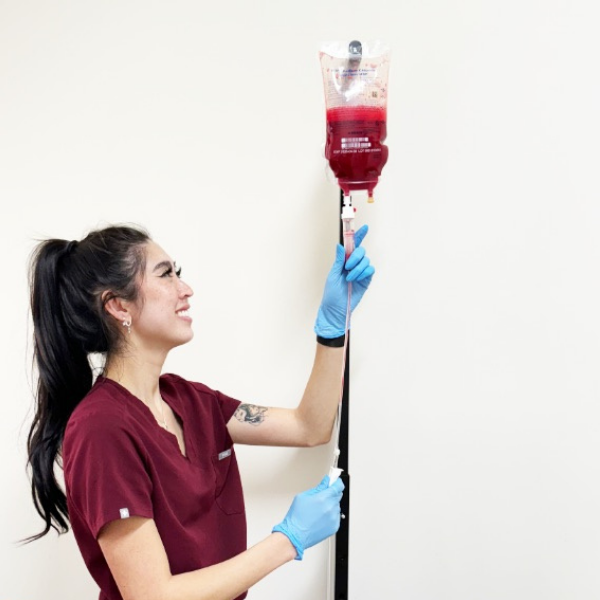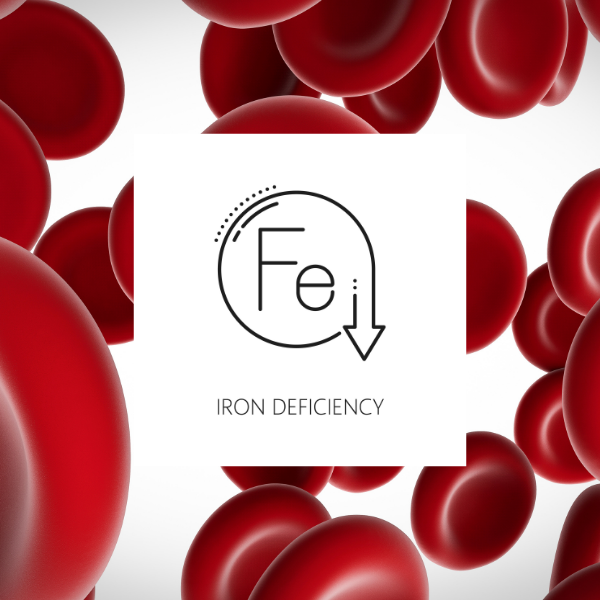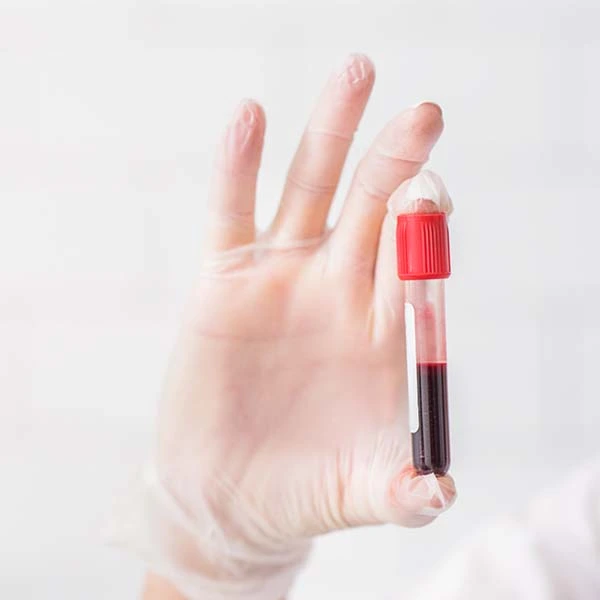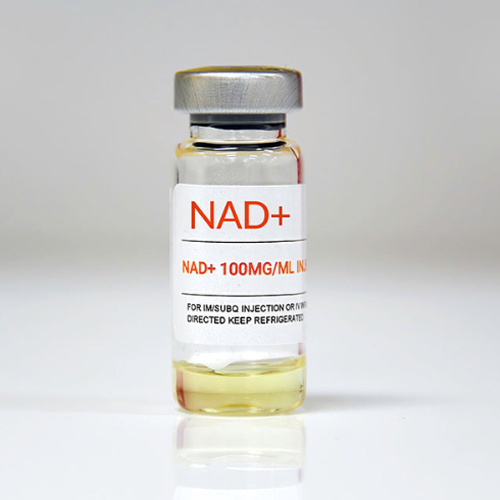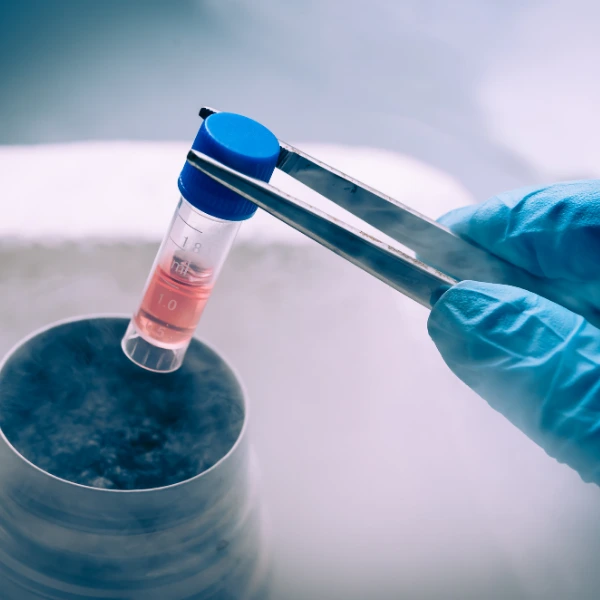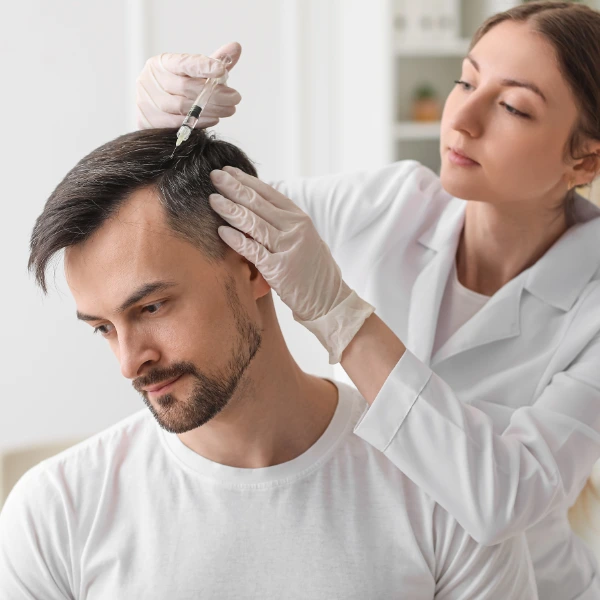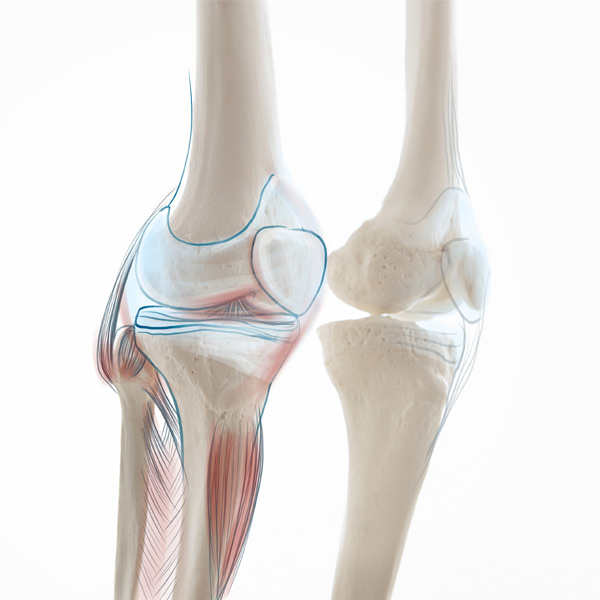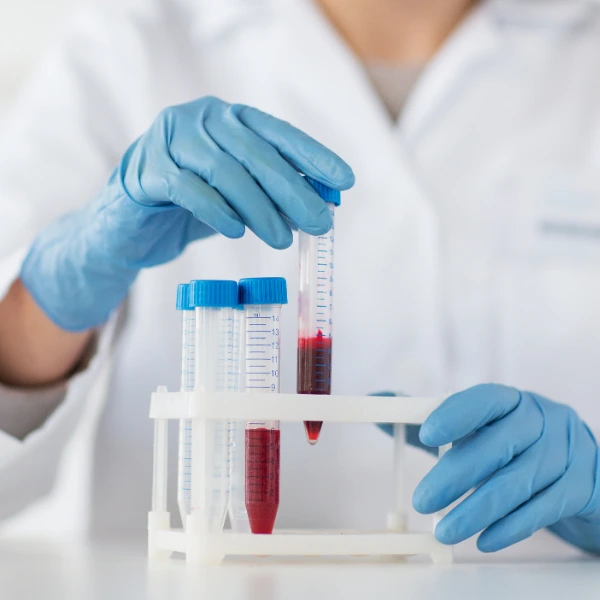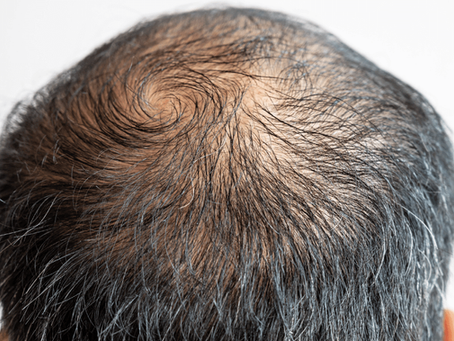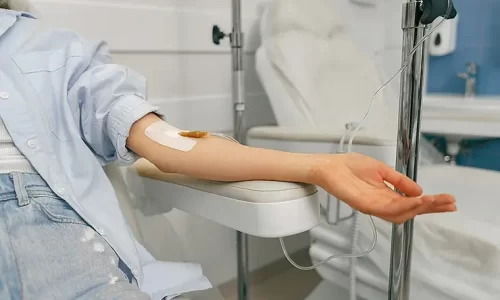Are you sick of seeing your thinning hair or receding hairlines in the mirror and feeling dejected? The quest for regaining lost locks is common, and you’re not alone in wondering if it’s possible to grow back hair. While achieving a full head of hair may seem like a distant dream, advancements in science and medicine have brought forth a range of treatments and solutions.
As the leading provider of PRP hair treatment in Houston, we’re here to answer any questions you may have on the matter. We’ll explore the fascinating world of hair growth, explores different causes of hair loss, debunks myths, and uncovers the truth about potential remedies.
Understanding Hair Growth
There are three stages to the hair growth cycle: anagen, catagen, and telogen. The anagen phase is the active growth stage, lasting two to six years. During this period, the cells in your hair follicles divide rapidly and produce keratin.
This leads to the thickening of the hair as it elongates its length. The catagen phase follows, which is a transition period that lasts for about two to three weeks. During this time, the hairs will start loosening their grip on the follicles and preparing to rest.
Finally, we have the telogen phase- the ‘resting’ stage that can last up to 6 months before the hair falls out and a new anagen phase begins. On average, we lose up to 150 hairs a day during the telogen phase- any more, and it can be a sign of hair loss or alopecia.
Factors influencing hair growth and Loss
Hair growth and loss are highly influenced by lifestyle factors such as nutrition, stress levels, genetics, and hormones.
Nutrition
Iron, protein, or zinc deficiency can cause hair thinning, while a balanced diet rich in essential vitamins and minerals can promote healthy hair growth.
Stress Levels
Chronic stress can cause telogen effluvium- excessive shedding due to physical or psychological shock.
Genetics
Male/female pattern baldness is usually caused by genetics and hormones, and it’s difficult to treat without medical intervention such as drugs or surgery.
Hormones
Hormonal imbalances from thyroid conditions, pregnancy, or menopause can also contribute to hair loss.
Underlying Causes of Hair Loss
The most common underlying cause of hair loss is genetics- male and female pattern baldness. This is often linked to hormones, as dihydrotestosterone (DHT) plays an important role in this type of alopecia.
Other causes include autoimmune conditions such as alopecia areata, telogen effluvium due to physical or psychological shock, and medical conditions such as diabetes, lupus, or polycystic ovary syndrome (PCOS).
Natural Remedies and Lifestyle Changes
There are many natural remedies and lifestyle changes that can help to promote hair growth. These include:
Reducing stress levels by practising yoga, meditation, or a hobby.
Massaging the scalp stimulates hair growth and increases blood flow.
Using natural oils such as coconut, almond, or olive oil to condition the scalp.
Avoiding hairstyles that pull on the hair follicles too tightly, such as tight braids or ponytails.
Using natural herbs and supplements to nourish the scalp.
Small changes to your lifestyle and diet can make a big difference in promoting hair regrowth and maintaining healthy locks. With proper care and attention, you can enjoy luscious and healthy hair.
Medical Treatments for Hair Loss
The most effective treatments for hair loss involve medical interventions such as minoxidil (Rogaine) and finasteride (Propecia). These medications can help to slow down the rate of hair loss and even stimulate regrowth.
Hair transplant procedures are another option for those with severe pattern baldness or thinning. Follicular unit transplantation (FUT) and follicular unit extraction (FUE) involve removing healthy hair follicles from one part of the scalp and transplanting them to bald or thinning areas.
New technologies such as platelet-rich plasma therapy, laser therapy, and low-level light therapy are also emerging as treatments for hair loss. These therapies involve injecting platelet-rich plasma into the scalp, using laser light to stimulate hair growth, or applying low-level light therapy to encourage regrowth.
Managing Expectations and Realistic Outcomes
When it comes to hair regrowth, it’s important to manage your expectations and understand the limitations of available treatments. While medications and medical therapies can help slow down or reverse hair loss, they are not guaranteed success.
In addition, hair growth is a slow process that can take several months before any visible results are seen. And in some cases, the effects of treatment may not be permanent, and hair regrowth may stop once treatment is discontinued.
Psychological Impact of Hair Loss: Coping Strategies
Losing hair can be emotionally draining, and it’s important to find ways to cope with this condition and the psychological impact it can have. Talking to a professional counsellor or therapist is often a great way to process your emotions and explore strategies for coping with hair loss.
It’s also important to remember that you are not alone in your journey, and support systems are available to help you through this challenging time. Finding ways to take care of yourself mentally, physically, and emotionally can also be beneficial for managing the psychological impact of hair loss.
Seeking Professional Advice?
If you’re looking for solutions to hair loss, seeking professional advice from a dermatologist or hair specialist is essential. They can accurately diagnose your hair loss’s cause and advise on the most suitable treatments.
At MyRevived, we have a team of experienced professionals who can help you find the best solution for your unique situation. We offer customized treatment plans based on your individual needs, which can help to promote hair regrowth and restore healthy locks.
We understand that dealing with hair loss can be challenging, so we provide encouragement and hope for those going through this journey. Our team will take the time to listen to your concerns and provide you with the support and information you need to make informed decisions about your treatment options.
Contact us today to discuss your hair restoration needs and find the best treatment plan. Visit our website at https://www.myrevived.com/hair-restoration-treatments to learn more about our offerings. We’re excited to assist you with regaining your self-confidence and achieving a fuller, healthier head of hair!


